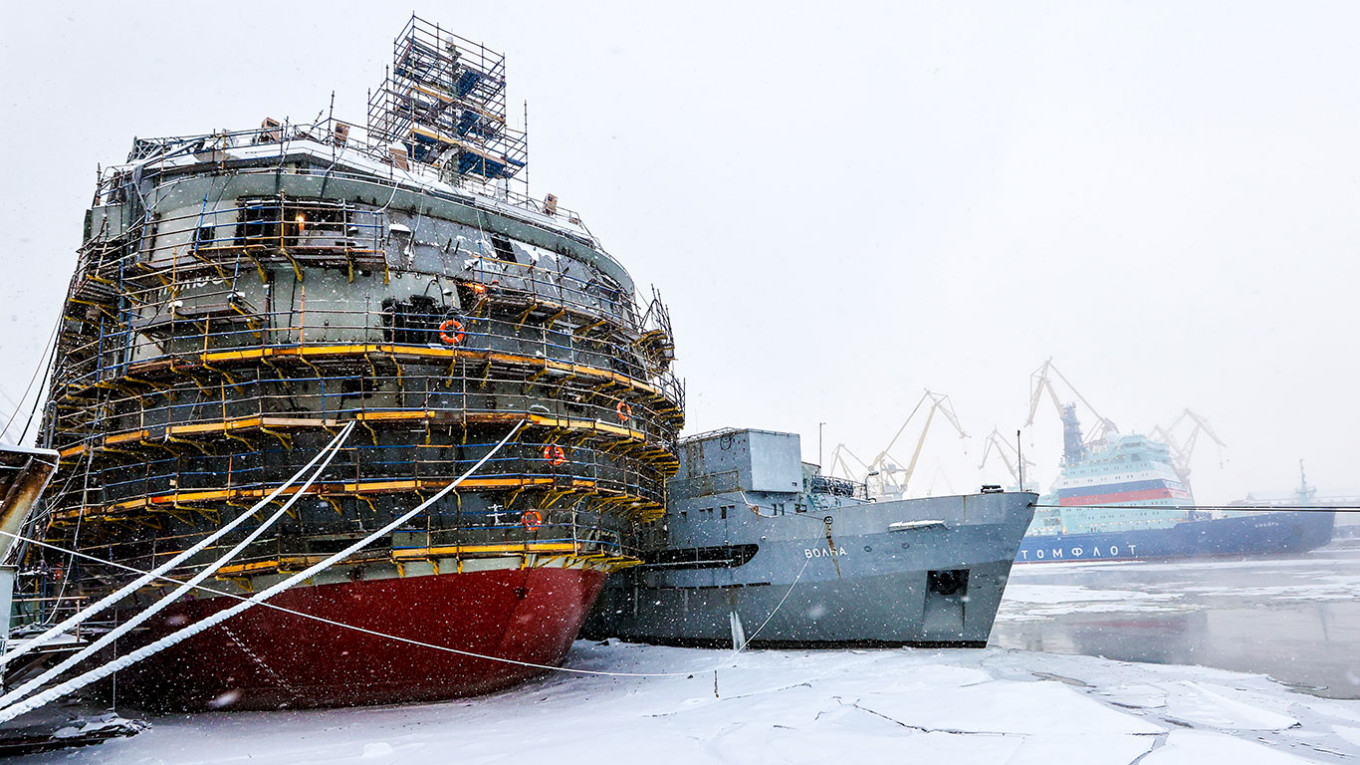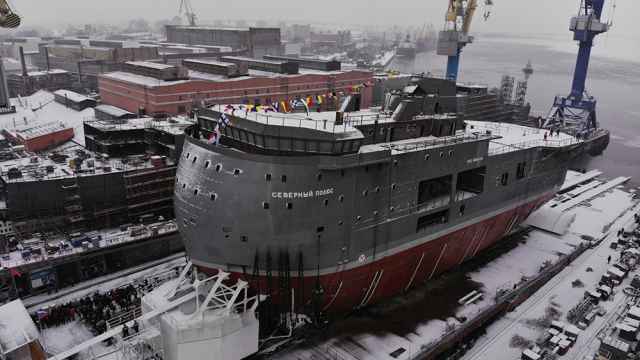There is still plenty of work left to be done. The 83-meter-long vessel with the peculiar shape is wrapped in scaffold in the Admiralty Yard in St. Petersburg. But progress is rapid.
The Severny Polyus research vessel is now more than 90% ready, Russian Natural Resources Minister Alexander Kozlov was told when he paid a visit to the yard this week.
“Already this year, the vessel will set out for its first expedition,” the minister said.
That expedition will not be extensive, but more like a sea trial to test key equipment.
Its first real voyage will come in 2023, when the Severny Polyus will sail into Arctic waters for a two-year expedition. The ship is designed to be able to drift with the Arctic currents without interruption for two years.
“The ice platform is our country’s contribution to the development of the Arctic,” Kozlov said in a comment.
The building of the vessel is seen also as a contribution to Russia’s presidency of the Arctic Council, and international researchers are expected to be invited to the maiden tour.
The Severny Polyus will house a crew of 14 and a research team of 34. It will be operated by the Russian meteorological service Rosgidromet.
The captain on board will be Sergei Nesterov, an experienced sailor in both the Arctic and Antarctica. He has also worked with foreign tourist cruise companies like Quark Expeditions.
The Severny Polyus platform will replace Russia’s Arctic expeditions that have been organized on ice floes since the 1930s. The quickly vanishing Arctic sea ice has made it increasingly hard to organize these expeditions and the last real ice station, the “North Pole-40,” was held in the winter of 2012.
“In order to provide high-quality prognosis we absolutely need constant data from the central parts of the Arctic. It is of great importance that researchers soon can get these data while staying onboard a ship in comfortable conditions and not in a tent on the ice,” the meteorological organization said in a statement.
The Severny Polyus will have 15 labs from which researchers can work year-round. It will be able to operate in the ice without icebreaker assistance and drift autonomously in remote Arctic waters for about two years.
Not everything has proceeded smoothly since construction started in 2018. There have been technical complications, and the construction cost has surged. The vessel was originally to cost about 90 million euros, but the price is now believed to exceed 120 million euros.
According to the Admiralty Yard, the auxiliary front engines are now in place and are being tested, and equipment for anchorage, towing and mooring are being installed.
A Message from The Moscow Times:
Dear readers,
We are facing unprecedented challenges. Russia's Prosecutor General's Office has designated The Moscow Times as an "undesirable" organization, criminalizing our work and putting our staff at risk of prosecution. This follows our earlier unjust labeling as a "foreign agent."
These actions are direct attempts to silence independent journalism in Russia. The authorities claim our work "discredits the decisions of the Russian leadership." We see things differently: we strive to provide accurate, unbiased reporting on Russia.
We, the journalists of The Moscow Times, refuse to be silenced. But to continue our work, we need your help.
Your support, no matter how small, makes a world of difference. If you can, please support us monthly starting from just $2. It's quick to set up, and every contribution makes a significant impact.
By supporting The Moscow Times, you're defending open, independent journalism in the face of repression. Thank you for standing with us.
Remind me later.






